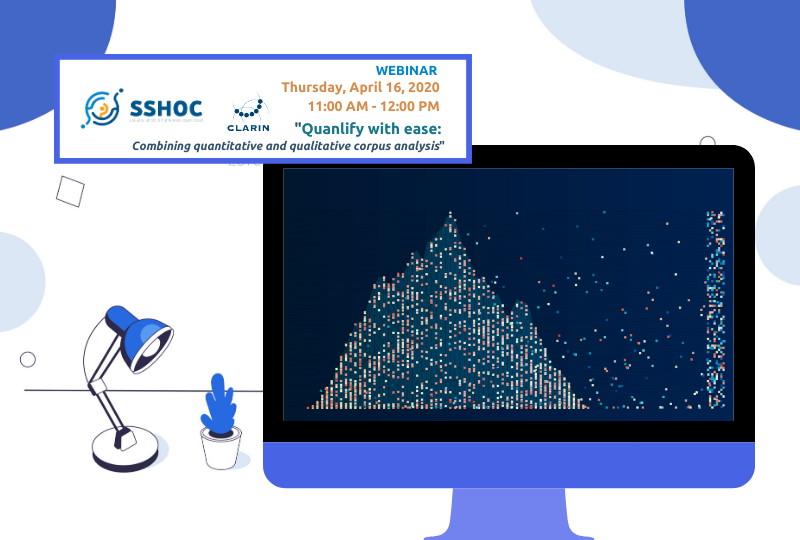
- Social Sciences & Humanities Open Cloud
Quanlify with Ease: Combining quantitative and qualitative corpus analysis SSHOC Webinar #3

Date:
16 April 2020 - 11:00 to 12:00
Location:
Online
There are many reasons why researchers in the humanities and the social sciences want to combine the quantitative, data-driven and algorithmic analysis of text with qualitative inspection, hermeneutic approaches and interpretation. One important reason is to attain intersubjectivity and to warrant the validity of findings.
Indeed, there are technological solutions for “quanlification” (validation of quantitative findings through qualitative means). Such approaches, however, are mostly integrated software solutions, local or server-based, that strongly limit possibilities to develop, test and deploy new workflows. During this webinar, Andreas Blätte, professor of Public Policy and Regional Politics at the University of Duisburg-Essen, will discuss the idea and the implementation of “quanlify”, a framework currently under development in the PolMine Project, which is implemented in the statistical programming language R. The package pursues a strongly modular design that would enable R users with intermediate skills to flexibly combine elements of workflows that comprise quantitative and qualitative features into comprehensible code, handy GUIs or interactive dashboards that can be used on- and offline.
DURING THIS WEBINAR, you will:
- Learn about the conceptual reasoning to combine quantitative and qualitative research practice when working with large-scale corpora.
- Discover a novel approach to how graphical user interfaces and dashboards that implement “quanlitative” workflows can be assembled using the modular design of the “quanlify”framework.
- Discuss how implementing workflows that combine quantity and quality can become as accessible as possible for text-oriented researchers without advanced programming skills.
ABOUT THE SPEAKER
Andreas Blätte is a professor of Public Policy and Regional Politics at the University of Duisburg-Essen. He is a political scientist by training, but has developed a strong interest in data and analytical tools for using corpora in the social sciences and the humanities. He has published three R packages (polmineR, RcppCWB and cwbtools) that are available via CRAN. His prime substantial research interest is the discursive dimension of migration and integration policy.
ABOUT THE HOST
Christoph Leonhardt works as a research associate at the Institute of Political Science of the University of Duisburg-Essen. Aside from the creation of language resources, his current research interests include the relationship between political discourse and institutional change, in particular combining perspectives of Political Science and Computational Social Science.
Watch the full recording of the webinar
For more information on this topic read the report on the related masterclass at the CLARIN Annual Conference 2019 in Leipzig.
